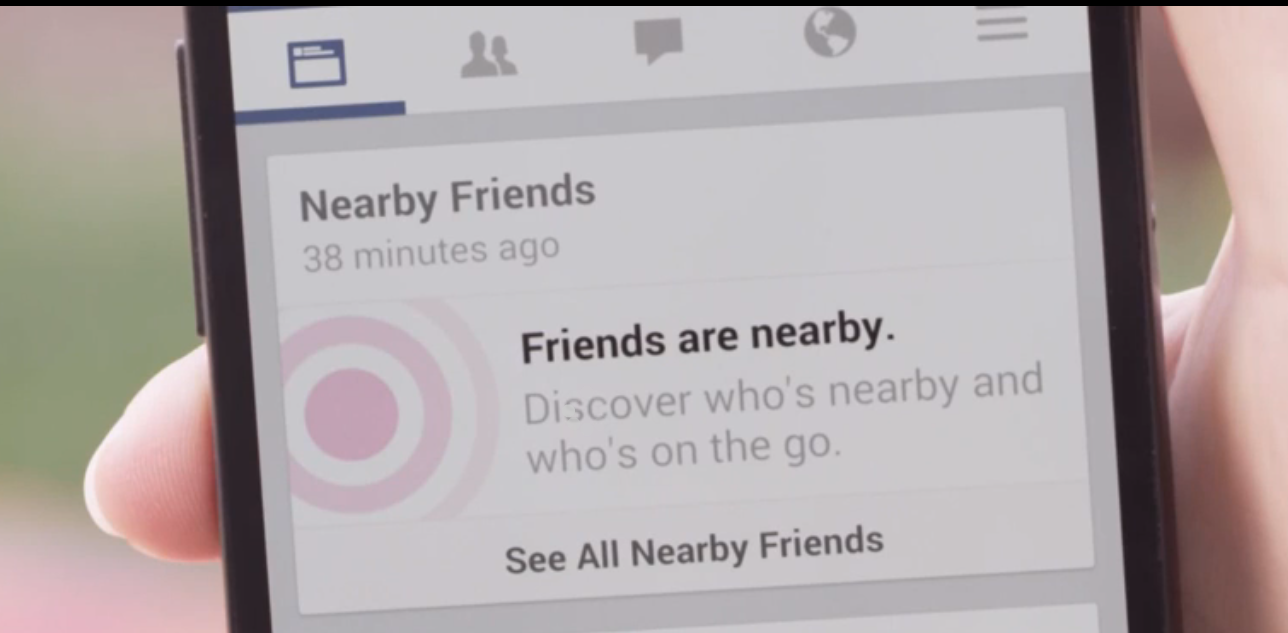When Facebook announced Thursday it was creating a new location-pinpointing component called Nearby Friends, the company’s 500 million worldwide users probably did not even bat an eye.
Videos by Rare
The new technology will only give Facebook, the federal government and online scammers the very personal information so many Americans whine about not wanting the NSA to know.
It’s 2014 and one of the top national issues is personal security; there’s no denying it. Millennials want the federal government out of their business. Anti-government surveillance champion Sen. Rand Paul, R-Ky., stole the majority for the GOP presidential nomination at this year’s Conservative Political Action Conference because of his staunch approach to privacy, calling it a human right.
I agree with that cause; from time to time, I complain about government surveillance, how I don’t like the idea of NSA implanting malware in my laptop or tracking who I call, especially as a journalist.
The government does seem too close for comfort but, while most Americans are busy pointing fingers at the law, they may be forgetting the huge role they continue to play in divulging their own personal information.
Until recently, I had not stopped to think about the role I was playing in the demise of my own privacy until my father pointed out the missteps that I and millions of my peers have made on social media: We share every detail of our lives and fool ourselves into believing “only friends” can access our photos and statuses.
Just in looking back at my Twitter, Facebook and Instagram accounts, I was a little embarrassed. A stranger reading my public Twitter account could easily discover that I walked past the White House [sometime last week] and then went to Corner Bakery.
Aside from the logistical, geographical side of privacy, my Facebook friends could easily determine from the type of stories I post how I feel about certain social issues and even who I Skyped this morning based on the screenshot I posted.
When I began considering the four fingers pointing back at me, there was no disputing the role I have played in making the government’s ability to spy on me incredibly easy. Where we go from here is not an easy question to answer. I have shared my whereabouts and thoughts on social media every year since the age of 15. It’s ingrained in most young adults, which can be hard for older generations to understand why the pull is so strong and hard to overcome.
Consider the risk though: While Facebook CEO Mark Zuckerberg may publicly complain about NSA’s calls to utilize its users’ information, it may just be a public facade to look concerned when, in reality, the billionaire is just doing what it takes to ensure his customers feel assured of their safety and his company continues to make astounding profits.
Watch a preview of Nearby Friends
[protected-iframe id=”1b2a7aae580db1f0e361874b43fe8854-46934866-21588235″ info=”http://www.washingtonpost.com/posttv/c/embed/http://www.washingtonpost.com/posttv/national/nearby-friends-from-facebook/2014/04/17/38deb376-c659-11e3-b708-471bae3cb10c_video.html” width=”480″ height=”290″ frameborder=”0″ scrolling=”no” allowfullscreen=””]
More stories on privacy issues:
- Democratic senators confirm Obama lied to Americans about NSA
- You think Snowden should have gone to government first? He did!
- Corporations pay $156 billion to know all kinds of private information about you



